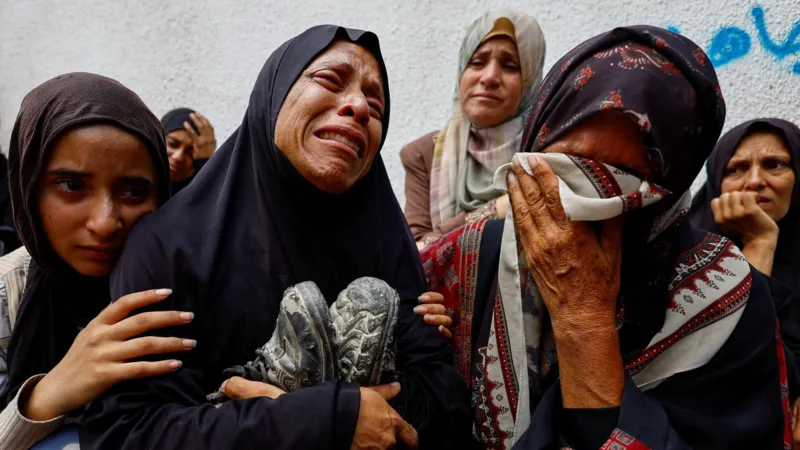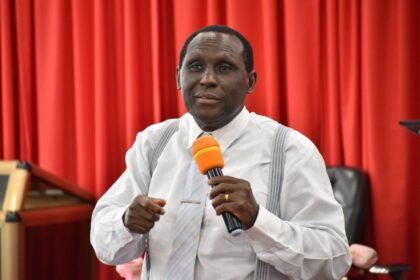A United Nations commission of inquiry has concluded that Israel has committed acts of genocide against Palestinians in Gaza, citing evidence from military conduct and official statements since the war with Hamas began in October 2023.
In a newly released report, the Independent International Commission of Inquiry on the Occupied Palestinian Territory found that four out of five acts defined as genocide under international law have occurred during Israel’s military campaign in Gaza. These include:
- Killing members of the group
- Causing serious bodily or mental harm
- Inflicting life conditions intended to destroy the group
- Preventing births within the group
The report cites extensive civilian casualties, mass displacement, widespread destruction of infrastructure, and reproductive violence as evidence of these acts. It also claims senior Israeli political and military leaders, including Prime Minister Benjamin Netanyahu, President Isaac Herzog, and former Defence Minister Yoav Gallant, have made public statements that, in the commission’s view, demonstrate genocidal intent.
“Genocidal intent was the only reasonable inference,” the commission said, referencing the scale and pattern of Israeli attacks, including the use of heavy munitions, targeting of civilian infrastructure, and imposition of a siege that has led to famine and health system collapse.
Israel Rejects Findings
Israel’s foreign ministry strongly rejected the report, calling it “distorted and false,” and accused the three-member panel of bias and spreading “Hamas propaganda.”
“In contrast to the lies in the report, Hamas is the party that attempted genocide in Israel—murdering 1,200 people, raping women, burning families alive, and declaring its goal to kill every Jew,” the ministry said.
An Israeli military spokesperson dismissed the report as “baseless,” claiming Israel has done more than any other military to avoid civilian harm while operating under extreme conditions.
Background to the Conflict
The report follows nearly two years of investigation by the commission, which was established by the UN Human Rights Council in 2021. The current conflict was triggered by Hamas’s October 7, 2023 attack, in which approximately 1,200 Israelis were killed and 251 taken hostage.
Since then, Gaza’s Hamas-run health ministry reports over 64,000 deaths, with mass displacement, famine, and near-total infrastructure collapse across the territory. UN agencies estimate that over 90% of homes are damaged or destroyed, and the population faces extreme food insecurity.
Key Allegations in the Report
Among the report’s most severe allegations:
- Killing civilians and inflicting mass suffering through widespread airstrikes
- Blocking humanitarian aid and essential services such as food, water, electricity, and fuel
- Destroying Gaza’s largest fertility clinic, reportedly wiping out over 4,000 embryos and 1,000 sperm and egg samples
- Statements inciting violence, including Defense Minister Gallant’s description of Palestinians as “human animals” and PM Netanyahu’s call for “mighty vengeance”
Legal and International Ramifications
To meet the legal definition of genocide under the 1948 Genocide Convention, it must be proven that acts were committed with intent to destroy, in whole or in part, a national, ethnic, racial, or religious group. The commission argues that Israel’s actions and rhetoric meet this threshold.
“These acts are attributable to the State of Israel,” the report states, adding that Israel bears responsibility for failing to prevent, committing, and failing to punish genocide.
The report also warns that other countries have an obligation to prevent and punish genocide. Failure to act could result in allegations of complicity.
Broader Context and Ongoing Cases
The commission had previously found Hamas and other Palestinian armed groups responsible for war crimes and grave human rights violations during the October 7 attacks.
Meanwhile, South Africa’s case against Israel at the International Court of Justice (ICJ) continues. The ICJ has not yet ruled on whether genocide is being committed but has ordered provisional measures to protect civilians in Gaza.
Next Steps and Resignations
All three commissioners—Navi Pillay (South Africa), Chris Sidoti (Australia), and Miloon Kothari (India)—announced in July that they would step down. Pillay, 83, cited health reasons and workload, while Sidoti referred to the need for new leadership.
Despite their departure, the commission’s findings are likely to intensify international scrutiny of Israel’s actions in Gaza and raise pressure on governments to take diplomatic or legal action.
Israel has urged that the commission not be reconstituted and called for its dissolution.














